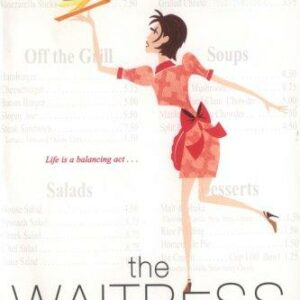Beer-Can Chicken
$24.99
| Title | Range | Discount |
|---|---|---|
| Trade Discount | 5 + | 25% |
- Description
- Additional information
Description
Chicken on a beer can? You bet! When Steven Raichlen, America's barbecue guru, says it's the best grilled chicken he's ever tasted, cooks stop and listen. An essential addition to every grill jockey's library, Beer-Can Chicken presents foolproof recipes for the ultimate poultry grilling technique, plus the perfect sides and desserts—more than 50 recipes in all. The results? The perfect bird, crackly crisp, succulent within—the most flavorful chicken you've ever tasted. Beer-Can Tandoori with yogurt, warming spices, and of course, India’s Kingfisher Lager. Sake Chicken with a wasabi-sesame rub. Truffled Chicken and Cousin Rob’s Cajun Chicken. Other birds on the can: Root Beer Game Hens and Beer-Can Turkey (perched on a 32-ounce can of Foster's). ”Beerless birds” (Ginger Ale Chicken, Black Cherry Soda Chicken), and birds cooked off the can in clever ways—like Stoned Chicken (grilled under a brick) and Welder’s Chicken (wrapped in foil and turned with welder’s gloves). Whether on a can, under a brick, or in the embers, each grilling technique is explained in easy-to-follow steps, with recipes that guarantee no matter how wild the process, the results are always outstanding. Includes sides, desserts, and all new instructions for beer-canning on a pellet grill—with full-color step-by-step and beauty photography throughout.
Okay, here it is. The master recipe for the ur-beer-can chicken, the showstopper that will dazzle your family and friends. If you’ve never made beer-can chicken before, start here, and once you’ve mastered the basic procedure, there’s no limit to its variations.
1 can (12 ounces) beer
1 chicken (31/2 to 4 pounds)
2 tablespoons All-Purpose Barbecue Rub or your favorite commercial rub
2 teaspoons vegetable oil
You’ll also need:
2 cups wood chips or chunks (preferably hickory or cherry), soaked for 1 hour in water and/or beer to cover, then drained Vertical chicken roaster (optional)
Pop the tab off the beer can. Pour half of the beer (3/4 cup) over the soaking wood chips or chunks, or reserve for another use. If cooking the chicken on the can, using a church key-style can opener, make 2 additional holes in its top. Set the can of beer aside. Remove the packet of giblets from the body cavity of the chicken and set aside for another use. Remove and discard the fat just inside the body and neck cavities. Rinse the chicken, inside and out, under cold running water and then drain and blot dry, inside and out, with paper towels. Sprinkle 1 teaspoon of the rub inside the body cavity and 1/2 teaspoon inside the neck cavity of the chicken. Drizzle the oil over the outside of the bird and rub or brush it all over the skin. Sprinkle the outside of the bird with 1 tablespoon of rub and rub it all over the skin. Spoon the remaining 1 1/2 teaspoons of rub into the beer through a hole in the top of the can. Don’t worry if the beer foams up: This is normal.
If cooking on a can: Hold the bird upright, with the opening of the body cavity at the bottom, and lower it onto the beer can so the can fits into the cavity. Pull the chicken legs forward to form a sort of tripod, so the bird stands upright. The rear leg of the tripod is the beer can. If cooking on a roaster: Fill it with the beer mixture and position the chicken on top, following the manufacturer’s instructions.
Tuck the tips of the wings behind the chicken’s back. Set up the grill for indirect grilling and preheat to medium. If using a charcoal grill, place a large drip pan in the center. If using a gas grill, place all the wood chips or chunks in the smoker box or in a smoker pouch and preheat on high until you see smoke, then reduce the heat to medium.
When ready to cook, if using a charcoal grill, toss all of the wood chips or chunks on the coals. Stand the chicken up in the center of the hot grate, over the drip pan and away from the heat. Cover the grill and cook the chicken until the skin is a dark golden brown and very crisp and the meat is cooked through (about 180 F on an instant-read meat thermometer inserted in the thickest part of a thigh, but not touching the bone), 1 1/4 to 1 1/2 hours. If using a charcoal grill, you’ll need to add 12 fresh coals per side after 1 hour. If the chicken skin starts to brown too much, loosely tent the bird with aluminum foil.
If cooking on a can: Using tongs, hold the bird by the can and carefully transfer it in an upright position to a platter. If cooking on a roaster: Use oven mitts or pot holders to remove the bird from the grill while it’s still on the vertical roaster.
Present the bird to your guests. Let the chicken rest for 5 minutes, then carefully lift it off its support. Take care not to spill the hot beer or otherwise burn yourself. Halve, quarter, or carve the chicken and serve.
Serves 2 to 4
All-Purpose Barbecue Rub
Variations on this rub have appeared in each of my barbecue books. There are four basic ingredients-salt, black pepper, paprika, and brown sugar-and by varying the proportions you can create an almost endless variety of flavors. For a spicier rub use hot paprika instead of sweet paprika. You could also substitute granulated sugar, light brown sugar, or Sucanat (powdered evaporated sugarcane juice) for the dark brown sugar. There isn’t a fish that swims, a bird that flies, or a beast that walks that wouldn’t benefit from a generous sprinkling of this multipurpose rub.
1/4 cup coarse salt (kosher or sea)
1/4 cup dark brown sugar
1/4 cup sweet paprika
2 tablespoons freshly ground black pepper
Put the salt, brown sugar, paprika, and pepper in a small bowl and stir to mix. (Your fingers actually work better for mixing the rub than a spoon or whisk does.)
Store the rub in an airtight jar away from heat and light; it will keep for at least 6 months.
Makes about 3/4 cup
Duckling “A L’Orange”
When I was in cooking school in Paris in the 1970s, duckling a l’orange was the highest test of a chef’s mettle. The duck had to be roasted just so-skin crackling crisp, meat tender and juicy-and the orange sauce had to strike a perfect balance between the sweetness of the caramelized sugar, the acidity of the fresh orange juice, and the bitterness of the orange peel and marmalade. The garnish involved all sorts of surgical legerdemain, from decoratively fluting orange rinds to placing candles in the hollowed fruit like a jack-o’-lantern. It’s a lot easier, and just as tasty, to cook duck on the grill-especially upright on an open beer can. So, here’s an orange duck that a bubba can relate to (after all, it’s made with orange soda) but that would do a Frenchman proud.
Advance preparation: 12 hours for drying the duck (optional)
1 duck (about 5 pounds), thawed in the refrigerator if frozen
1 can (16 ounces) beer (see Note)
1 can (12 ounces) orange soda
Coarse salt (kosher or sea) and freshly ground black pepper
2 strips orange zest (1/2 by 11/2 inches each, removed with a vegetable peeler)
1 orange, cut in half
1 tablespoon olive oil
Apricot-Orange Sauce (see below)
You’ll also need: Vertical chicken roaster (optional)
Remove the packet of giblets from the body cavity of the duck and set aside for another use. Remove and discard the fat just inside the body and neck cavities. Rinse the duck, inside and out, under cold running water and then drain and blot dry, inside and out, with paper towels. Prick the duck skin all over with a sharp fork, like a carving fork, taking care not to pierce the meat. Place the duck on a wire rack on a tray in the refrigerator and let dry out, uncovered, overnight (this is optional, but it will help give you crisper skin).
Pop the tab off the beer can, pour out three quarters of the beer (1 1/2 cups), and reserve for another use. If cooking the duck on the can, using a church key-style opener, make 2 additional holes in the top of the beer can. Using a funnel, add 1/2 cup orange soda to the beer can. Don’t worry if the beer foams up a bit: This is normal. Reserve the remaining orange soda for the sauce.
Season the body and neck cavities of the duck very generously with salt and pepper. Place a strip of orange zest in the body cavity and in the neck cavity. Rub the outside of the duck all over with the cut orange. Drizzle 1 1/2 teaspoons of olive oil over the duck and rub it all over the skin. Very generously season the outside of the duck with salt and pepper.
If cooking on a can: Hold the duck upright, with the opening of the body cavity at the bottom, and lower it onto the beer can so the can fits into the cavity. You’ll need to do some twisting. Pull the duck legs forward to form a sort of tripod so the bird stands upright. The rear leg of the tripod is the can. If cooking on a roaster: Fill it with1/2 cup beer and 1/2 cup orange soda and position the duck on top, following the manufacturer’s instructions.
Tuck the tips of the wings behind the duck’s back.
Set up the grill for indirect grilling and preheat to medium. If using a charcoal grill, place a large drip pan in the center. When ready to cook, carefully stand the duck up in the center of the hot grate, over the drip pan and away from the heat. Cover the grill and cook the duck until the skin is a dark golden brown and very crisp and the meat is cooked through (about 180ªF on an instant-read meat thermometer inserted in the thickest part of a thigh, but not touching the bone), 11/2 to 2 hours. After 1 hour, prick the duck skin again with a sharp fork, taking care not to pierce the meat. This helps release the fat. Baste the duck with the remaining 11/2 teaspoons of olive oil, taking care not to knock the bird over. If using a charcoal grill, you’ll need to add 12 fresh coals per side after 1 hour. If the duck skin starts to brown too much, loosely tent the bird with aluminum foil.
If cooking on a can: Using tongs, hold the duck by the can and carefully transfer it in an upright position to a platter. If cooking on a roaster: Use oven mitts or pot holders to remove the duck from the grill while it’s still on the vertical roaster.
Present the duck to your guests. Let the duck rest for 5 minutes, then carefully lift it off the support. Take care not to spill the hot beer or otherwise burn yourself. Carve the duck or cut it in half or quarters and serve with Apricot-Orange Sauce.
Serves 2
Note: Because of the duck’s elongated shape, you’ll need a “tall boy”-a 16-ounce can of beer.
Apricot-Orange Sauce
Five stars here, orange soda, orange zest, orange juice, orange marmalade, and orange liqueur, are joined by apricots to deepen the flavor, while lemon juice adds a piquant touch. Try to use a homemade chicken broth or at very least a low-sodium canned broth.
3/4 cup orange soda (reserved from Duckling “a l’Orange”)
1/2 cup homemade chicken stock or low-sodium canned chicken broth
2 strips orange zest (1/2 by 1 1/2 inches each, removed with a vegetable peeler)
1/2 cup fresh orange juice
1 cinnamon stick (3 inches) or 1/2 teaspoon ground cinnamon
1/2 cup pitted dried apricots (about 21/2 ounces)
3 tablespoons orange marmalade
3 tablespoons brown sugar, or more to taste
2 tablespoons cider vinegar, or more to taste
1 tablespoon fresh lemon juice
1/2 teaspoon cornstarch
1 tablespoon Cointreau or other orange liqueur
1 tablespoon butter
Coarse salt (kosher or sea) and freshly ground black pepper
Put the orange soda, chicken stock, orange zest and juice, and cinnamon stick in a heavy saucepan over high heat, bring to a boil, and let boil for 3 minutes. Remove the pan from the heat and add the apricots. Let soak for 30 minutes. Remove and discard the cinnamon stick.
Transfer the apricots and their soaking liquid to a blender. Add the marmalade, brown sugar, vinegar, and lemon juice and purTe until smooth. Pour the mixture through a strainer into a saucepan, forcing the fruit pulp through the strainer with a spatula (don’t forget to scrape the strained pulp off the bottom of the strainer).
Return the sauce to the saucepan and let simmer for 3 minutes over medium-high heat. Dissolve the cornstarch in the orange liqueur and stir this into the sauce. Let simmer for 2 minutes longer; the sauce will thicken slightly. Remove the pan from the heat and whisk in the butter. Add salt, pepper, and additional brown sugar or vinegar to taste. The sauce can be served warm or at room temperature. It can be refrigerated, covered, for up to 5 days. Let return to room temperature or reheat over medium heat.
Makes about 1 1/4 cups
Fish Grilled On A Board
Simplicity itself, this is one of the best ways I know to cook salmon. Grilling it on a plank imparts all sorts of intriguing spice flavors to the fish. The mustard cuts the oily taste, while the brown sugar accentuates the sweetness. Plus, you’re looking at about 3 minutes of preparation time. I call for the fish to be grilled indirectly in this recipe-this eliminates the risk of setting the plank on fire. Brave hearts can try the direct method, following the instructions at the end of the recipe.
1 or 2 pieces salmon fillet (1 1/2 pounds total)
Plenty of coarse salt (kosher or sea) and freshly ground black pepper
6 tablespoons Dijon (smooth) or Meaux (grainy) mustard
6 tablespoons brown sugar
You’ll also need: 1 cedar plank (6 by 14 inches), soaked in salted water for 2 hours, then drained
Remove the salmon skin or have your fishmonger do this for you. Run your fingers over the fish, feeling for bones. Pull out any you find with needle-nose pliers or tweezers. Rinse the salmon under cold running water and then blot dry with paper towels. Very generously season the salmon on both sides with salt and pepper. Lay the salmon on the soaked plank and carefully spread the mustard over the top and sides. Place the brown sugar in a bowl and crumble it between your fingers. When powdery, sprinkle it over the mustard.
Set up the grill for indirect grilling and preheat to medium-high. When ready to cook, place the salmon and plank in the center of the hot grate, away from the heat. Cover the grill and cook the fish until cooked through, 20 to 30 minutes. To test for doneness, insert an instant-read meat thermometer through the side: The internal temperature should be about 135 F. Or insert a slender metal skewer through the side; it should come out very hot to the touch after 20 seconds. Transfer the salmon and plank to a platter and serve right off the plank.
Serves 4
Introduction: The Offbeat Grill
Getting Started
Equipment
Putting it All Together: Frequently Asked Questions About Beer-Can Chicken
A Note About Basic Ingredients
Beer-Can Chicken
Basic Beer-Can Chicken, Brewmeister’s Chicken, Chicken Carbonnade, Brined Big Boy, Cousin Rob’s Cajun Chicken, Beer-Can Tandoori, "Peking" Beer-Can Chicken, Chicken Aquavit, Vietnamese Lacquered Chicken, Truffled Chicken, Chicken Retsina, Sake Chicken
Beerless Birds
Cola-Can Chicken, Ginger Ale Chicken, Cel-Ray Chicken, Black Cherry Soda Chicken, Peach Nectar Chicken, Cranberry Chicken, Lemonade Chicken, Thai Coconut Chicken, Iced Tea Chicken
Other Birds Meet the Can
Pineapple Juice Quail, Quail on a Throne, Partridge on a Pear Can, Beer-Can Game Hens, Root Beer Game Hens, Duckling “à l’Orange,” Peking Duck, Beer-Can Turkey
Birds Off the Can
Welder’s Chicken, “Stoned” Chicken, Game Hens Under Bricks, Toad Chicken, Diabolical Chicken
On the Side
Grilled Artichokes, Corn Roasted in the Husk, “Caviar” on the Coals, Grilled Horn Peppers, Pepper Soup on the Grill, Potatoes in the Embers, Hash on the Half Shell, Red, White, and Blue Potato Salad
Just Desserts
Grilled Pound Cake, “Glazed Doughnuts,” Peaches ‘n’ Cream, Coconut Custard in Coconut Shells, Baked Hawaii, Grilled Fruit Smoothie
Conversion Tables
Index
Additional information
| Dimensions | 0.524 × 7.05 × 9 in |
|---|---|
| Imprint | |
| Format | |
| ISBN-13 | |
| ISBN-10 | |
| Author | |
| Audience | |
| BISAC | |
| Subjects | impressive meals, beer can chicken, spicy peanut, easy steak, tasty chicken, unique recipe, cooking with alcohol, rubs and marinades, summer entertaining, recipes for summer, outdoor party, moist juicy chicken, creative chicken recipes, gifts for men, cookbooks by men, funny cookbook, mouth watering recipes, crazy techniques, asian inspired recipes, cookbooks for men, masculine cooking, grill jockey, CKB032000, Grilling techniques, CKB060000, christmas gift |











